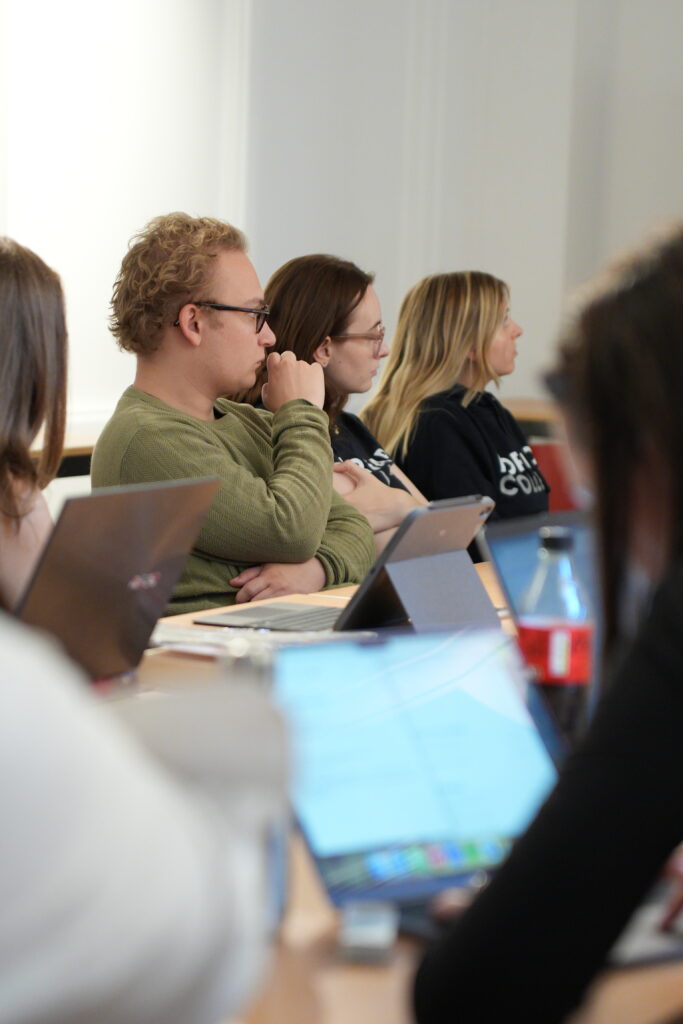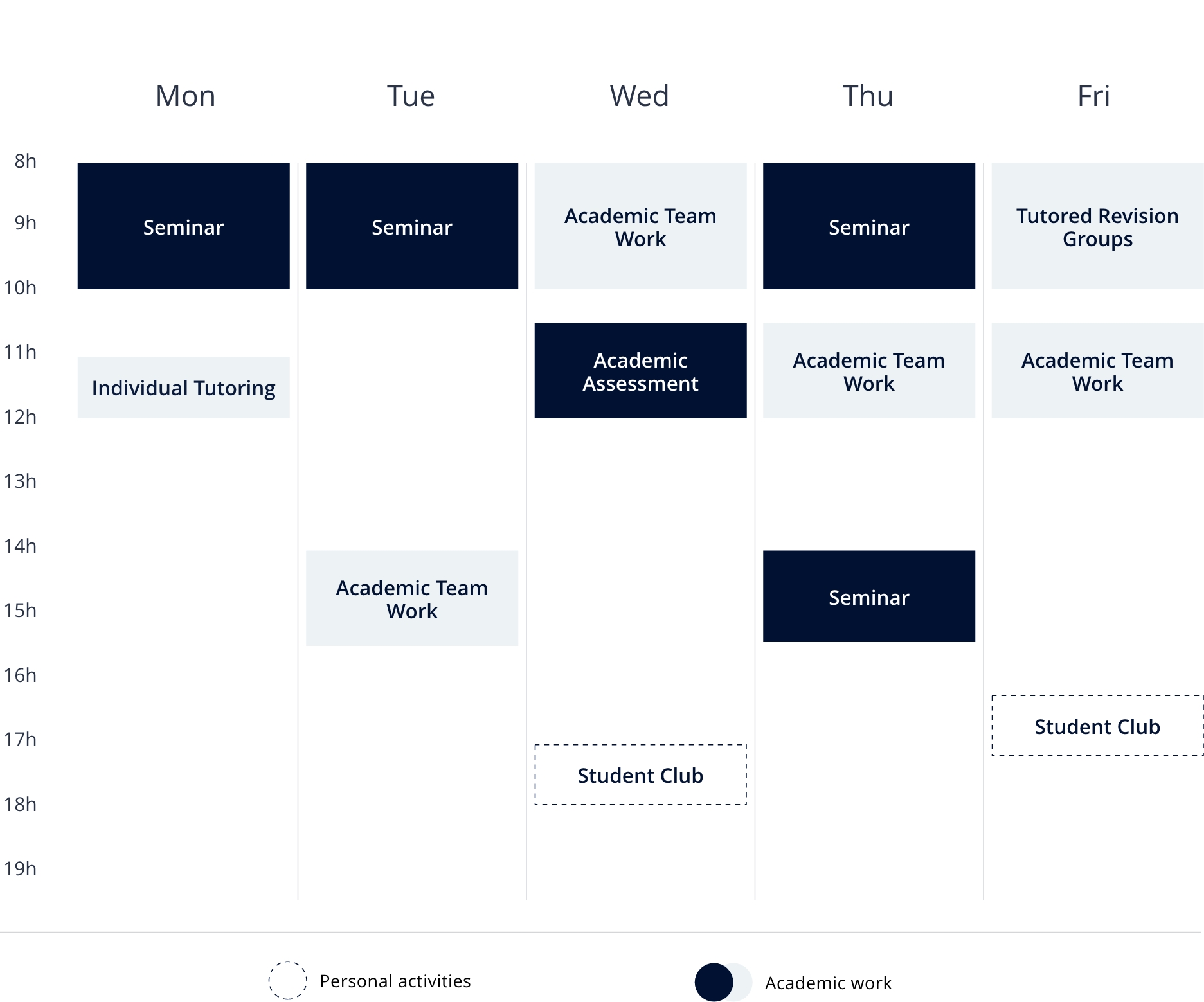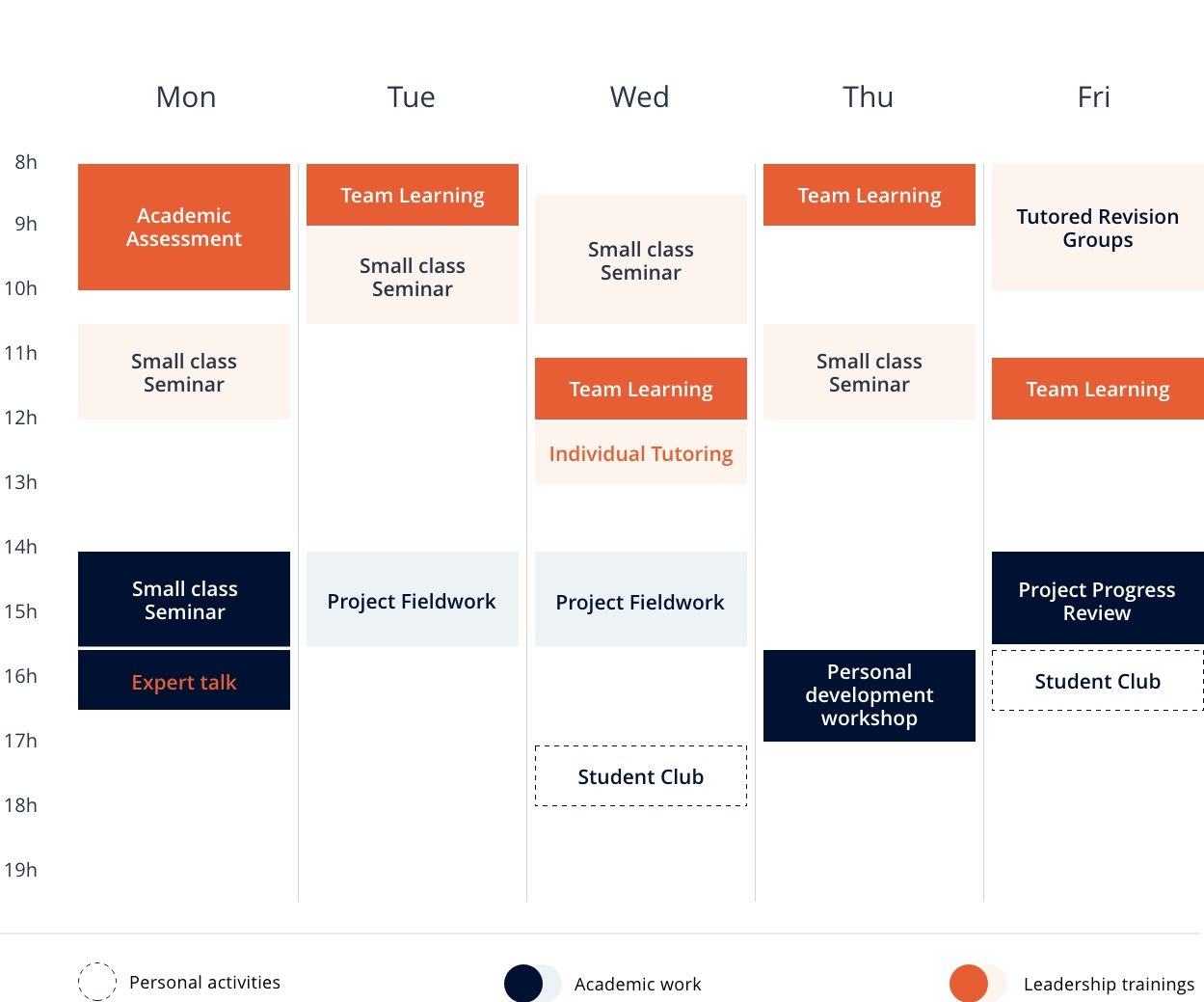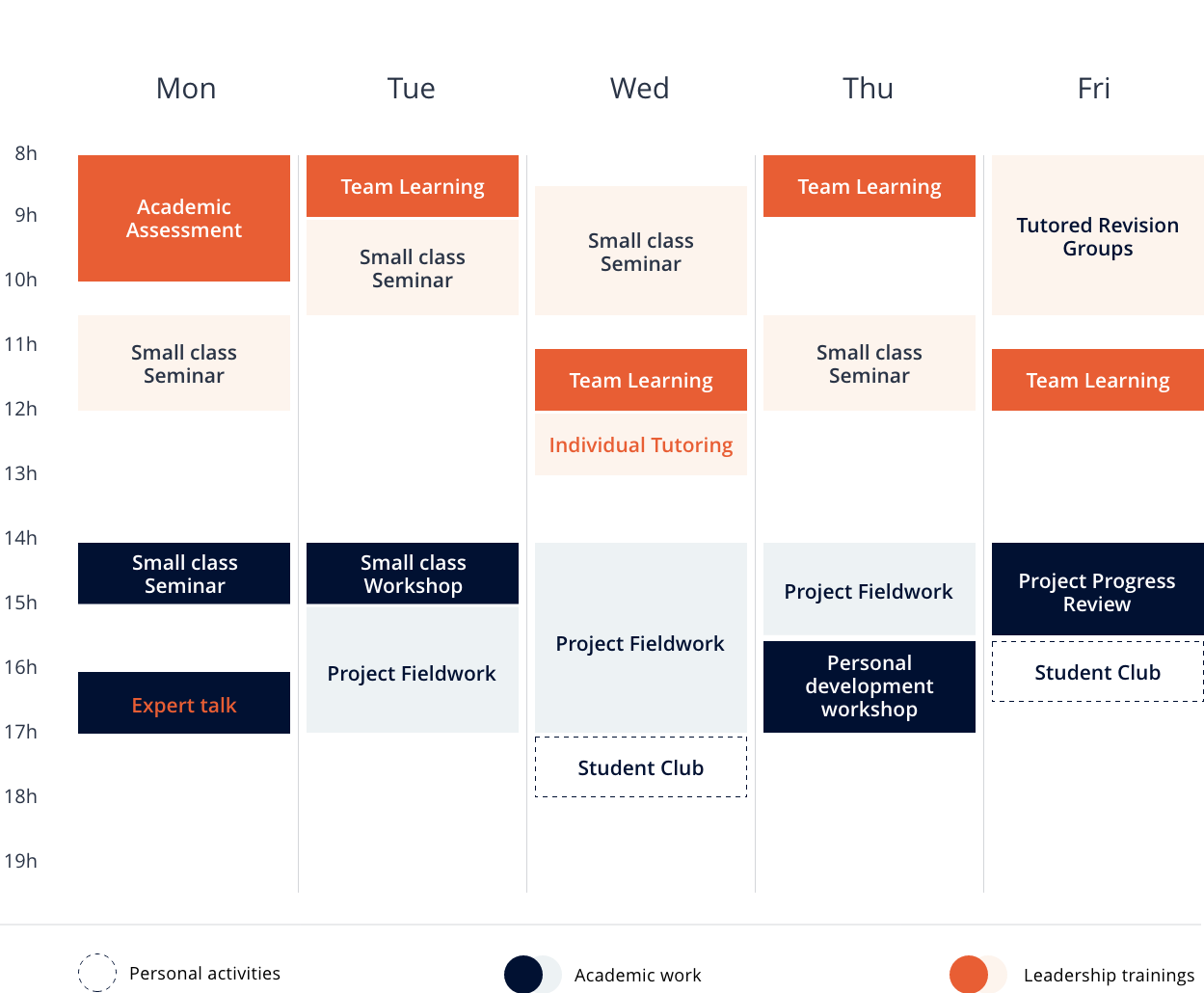Seminars
Teaching mostly takes place during seminars with one Forward Fellow (Member of faculty) and 15 students on average. Seminars are flipped: they are not designed to deliver content but to help students answer difficult questions, solve problems in teams, debate or simulate real-life situations after having been through the content. Students are expected to be highly engaged and come to class fully prepared which requires 4-8 hours of work before each academic seminar to:
– study their course independently (readings) and apply it and/or answer questions depending on the subject
– meet in small study groups (2-4 students) to share difficulties and support each other.
– escalate most aspects of the learning material to their Fellow so that he/she can ensure the maximum impact of their class.




